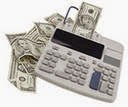According to FranchiseHelp Holdings there are
approximately 38,287 tax preparations companies in the U.S. Approximately 144
million taxpayers filed tax returns last year. For several
decades large chain tax preparation companies have preyed on low-income neighborhoods,
inner-city and rural areas opening offices across the country. These taxpayers
were lured into their offices promising to receive quick refunds in exchange
for a fee knowing that most of these taxpayers were desperate for money and
would jump at the opportunity even though it was a bad choice.
Offices are
specifically located in areas where incomes are less than $50,000 or in areas
where there are several check cashing stores and liquor stores. These tax
preparation companies also lure these taxpayers into their offices with free
coffee, snacks, and flat screen televisions in the waiting areas all to get
repeat business and increase their profits.
In some
instances customers are lied to and confused by the services offered and don’t
realize that if they file their taxes online or through a free tax preparation
center they can get their refund back in the same time period. These large
chain companies are stealing money from low-income taxpayers who need their
money the most.
The federal
government stopped these large chain tax preparation companies from offering
the refund anticipation loan or rapid refund. However, these tax preparation
chains found a loophole around. H&R Block now offers taxpayers the gimmick to
put your refund on an “Emerald Card” for a $45 fee or to you can get a “paystub
loan” where taxpayers get a partial advance on their tax refund in December of
January before the taxpayer receives their W-2. The interest charged on this paystub
advance is 25% in addition to the fee charged to prepare their taxes.
H&R Block also
has a “Second Look” gimmick where they offer to look over your taxes to find
errors. When you file taxes the IRS will catch the errors and fix them for you so
there is no need to waste time going to H&R Block or any other company. Jackson Hewitt and Liberty Tax offer similar
gimmicks. Jackson Hewitt allows taxpayers to go to Walmart to get their taxes
prepared. You have the following
options:
- Get a Walmart prepaid debit card which requires you to load money onto the card for a fee.
- Receive a $10 Bluebird American Express gift card or get your tax refund for free if you get direct deposit
- Get at $20 Walmart gift card if you file your taxes online.
- Get a $50 Walmart gift card if you file your taxes in a Walmart store.
These are all
gimmicks to get you in the Walmart store to shop. These companies charge higher
prices, are inexperienced, make mistakes, use gimmicks, may not be honest, add a
protection clause or an arbitration clause in
their contracts which prevents taxpayers from suing them in court.
The alternatives to filing with the tax preparation chains are:
1.
File your
taxes using a tax preparation software.
2.
File your
taxes by mail.
3.
Hire an
accountant or CPA.
4.
If you earn
less than $60,000 go to a free tax preparation center by calling 800-906-9887
or using the site http://irs.treasury.gov/freetaxprep/
or use free tax preparation software which can be found on www.irs.gov.
5.
Use IRS Free
File if your adjusted gross income is $60,000 or less.
6.
If your
income is above $60,000 you can use Free File Fillable Forms available on the IRS
website www.irs.gov.
- Use an authorized tax efile provider which can be found on www.irs.gov.
- Comparison Shop. Go to at least 3 companies to get price quotes to help you find the best deal.
- Price match. Ask about price match guarantees that honor competitor prices.
- Go with your gut. Use common sense. Go with your gut instinct, if you feel like the deal is too good to be true or if you feel like something is not right with the loan, don't sign it.
- Ask questions. Ask lots of questions; have everything explained to you prior or during settlement.
- If you still decide to use a tax preparation company and don’t want to pay their fee, you don't have to pay. You can take your paperwork, leave and look for another company to prepare your taxes.
Be wary of people or companies that brag
about getting you large refunds, provide guarantees, or offer to get your
refund quicker without ever seeing your taxes or knowing anything about you.
When looking to hire a tax professional things to consider are: qualifications, licensed in your state, experience,
past references, work hours, professional reputation, trustworthiness,
professionalism, professional memberships, your specific tax needs,
comfortability and capability.

